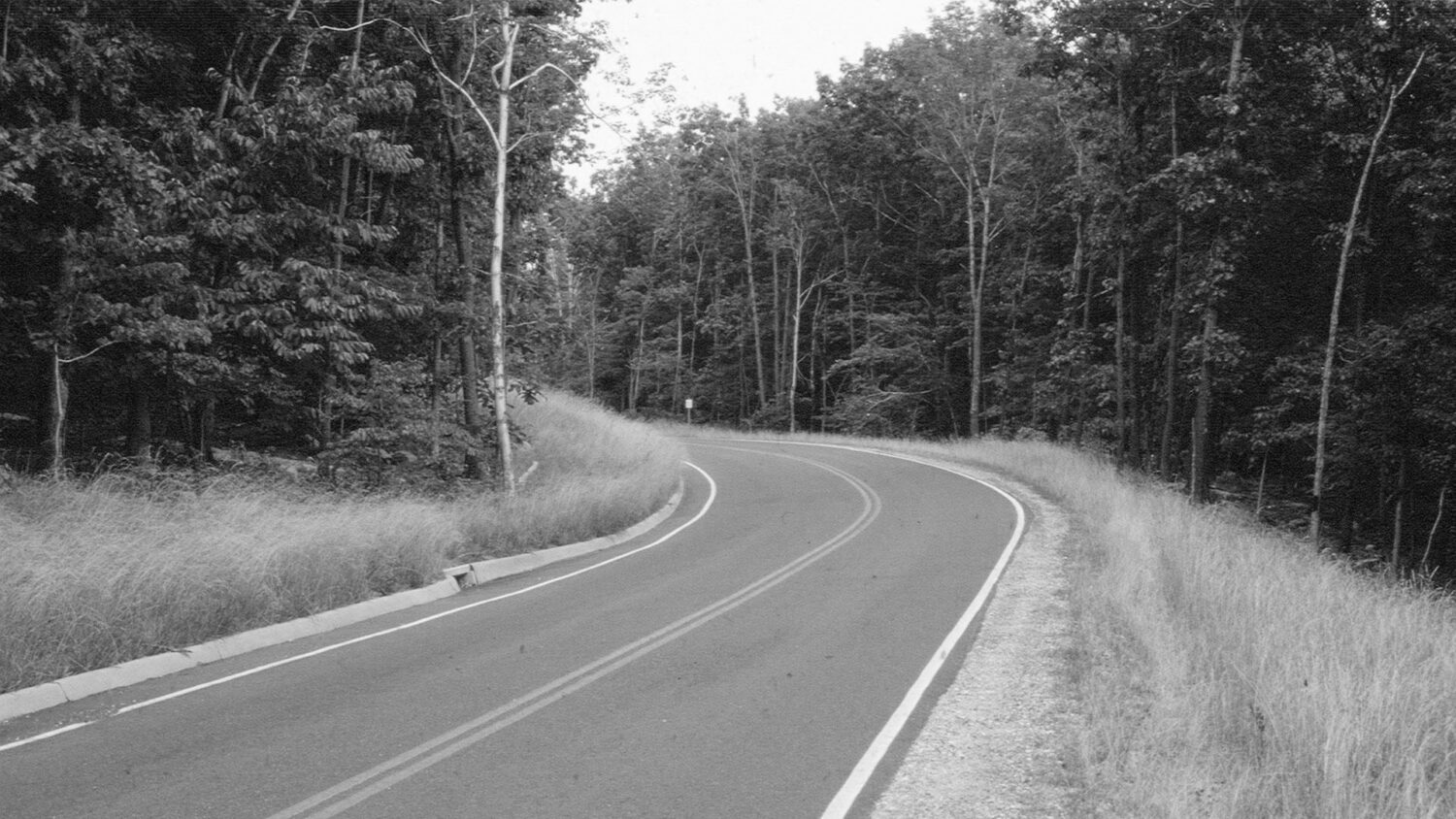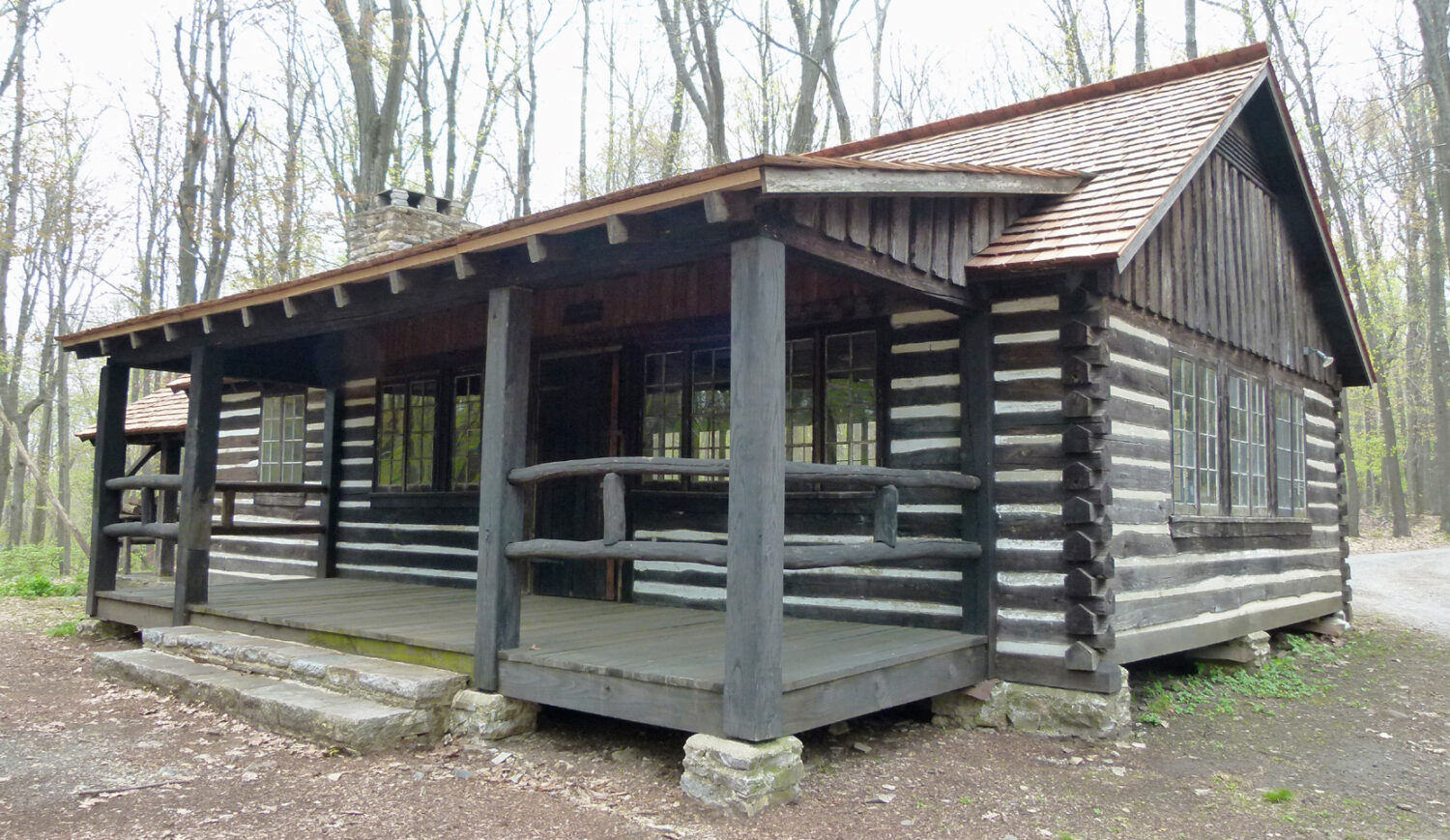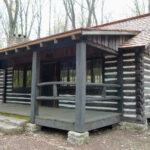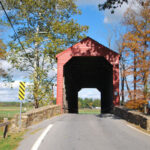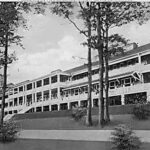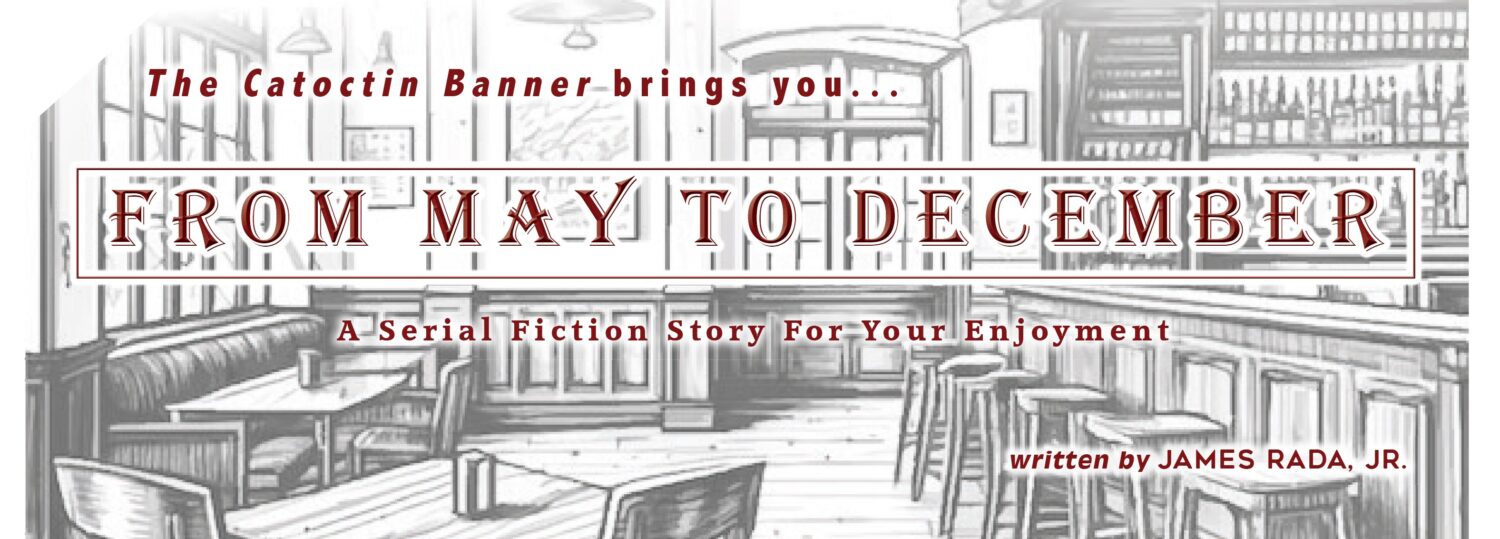
A serial fiction story for your enjoyment
written by James Rada, Jr.
8: A Surprise Visitor
Stacy Lawrence turned in her two weeks’ notice to Kevin Poland, the owner of the Thurmont tavern where she worked. He was disappointed she was leaving so soon, but he realized that her new job managing Bobby Hennessey’s farm was a good opportunity for her. In the meantime, Stacy used her free time to get to the cabin, where she and Peter would be living on the farm, ready to live in.
The job switch affected Stacy less than switching homes did. It felt odd leaving the tavern because the apartment above it was her first place to live in Thurmont. The apartment had been in worse shape when she moved in than the cabin was in, but she and Peter had fixed it up and turned it into their home.
Once her work on the farm started, she slipped into the job easily. She also had to admit to herself that she liked running a farm more than bartending and waitressing in the tavern. Her priority was to take stock of what Bobby had on the farm and make sure that it was taken care of. He had already done a good job with that, but she needed to know what she had to work with before she could know what the farm needed. She made a list of what could be done quickly to generate revenue for the farm and what they would have to build up to.
She talked everything over with Bobby a few times a week to get his okay and his own input on what he would like to see done.
They sat on his back patio in the evenings talking about the farm and life. Once, she asked him why he hadn’t ever remarried.
He had tipped his chair back on its rear legs and said, “It never seemed right.”
“Oh, so you do date?”
Bobby grinned. “Are you asking me about my personal life?”
He was older than her, but he couldn’t be that old, even if he wouldn’t say what his age was. She realized she may have crossed a line, though, and quickly apologized.
Bobby waved it off. “No need. It’s always nice when someone is direct. It keeps the grapevine trimmed.”
“Are you a popular topic on the grapevine?”
He sipped at his beer. “I can be. I’m a single man and divorced women and widows like to know who’s available and worth their time.”
“I suppose you’re quite a catch,” Stacy said with a bit of sarcasm.
“It depends on who you ask. Anyway, the ladies I’ve seen from time to time were in Hagerstown and Frederick. One was in Westminster.”
“The local ladies aren’t good enough for you?”
“No, they’re fine. Better than fine. I consider many of them wonderful friends, but I don’t like feeling those same friends are watching me on a date and commenting on it. It’s uncomfortable enough when they talk about it my face. My life isn’t a season of The Bachelor.”
“So will I see one of these ladies at the farm?”
Bobby shook his head. “No, there’s no one right now. Hasn’t been for months.”
“None of them measure up to your wife?”
He shrugged. “Maybe. It just never seemed right to take things any further. I could see some of them being a possibility if I lived in Thurmont, but not up here.”
“What’s wrong with up here? I love it.”
“Farming’s not everyone’s cup of tea. I can barely handle it myself.”
“So, you haven’t found the right woman to fit with your life?”
Bobby thought for a moment. “More like I haven’t found the right feelings to fit with the women.”
Stacy could understand that her boss was being careful. He had chosen a good wife, and he couldn’t help that fate had had other plans for him when she and his daughter had been killed in an accident. Stacy had been the opposite. She’d been willful because she thought she had known better than her parents. She’d chosen the wrong husband and got pregnant at the wrong time. She didn’t regret having Peter. He was wonderful, but she had had to grow up quickly, even quicker when Jack had left her.
Bobby seemed to be enjoying not having the burden of the farm hanging over him. She often saw him painting, but he would also disappear into the house for hours at a time. He said it was to check the markets for his financial work.
Occasionally, he would come out while Peter was in school and ask her if she needed help. Even if she didn’t, she would find something for him to do. She enjoyed his company. He would tell stories of his childhood and Thurmont when it was even smaller than it was now. He had told her how he had gone to high school when it was in the middle school building. It had been falling apart at the time, but he assured her the school board had fixed it up when they turned it into a middle school. He talked about old businesses that were no longer around and the funny things people in town sometimes did.
Peter especially enjoyed Bobby’s stories of when he was in school without computers. Peter seemed to think it had been in the Dark Ages. When Peter needed help with math homework, Bobby helped him, and Peter was actually excited when he understood algebra. Stacy would catch them sitting on the front porch from time to time whittling. Even if she didn’t know what they were creating, they did, and they had fun doing it.
After a month of working on the farm and starting to feel comfortable, Stacy noticed something else.
“You aren’t going out as much,” Stacy said to Bobby.
Bobby raised an eyebrow. “Are you my mama now, watching when I leave and get back?”
Stacy blushed. “No, but you used to be in town, it seemed like all the time. Eating in restaurants. Going to the American Legion. Playing Bingo at the ambulance company. Now, you always hang out around here painting, whittling with Peter, or sitting with me on the patio.”
“I still go to town sometimes.”
“But usually with me and Peter to get pizza.”
“I like pizza.”
Stacy shook her head and sighed.
About a week later, she pulled into the driveway that ran past the main house where Bobby lived and went back to the cottage. She had picked up Peter from Thurmont Middle School, and he sat beside her.
She saw Bobby sitting on the front porch with someone. At first, she thought it was a woman. Maybe Bobby had taken their talk to heart and started dating again. Then she realized it wasn’t a woman. It was someone she knew.
Peter grabbed her arm. “Mom, stop! It’s Dad!”
Stacy stopped the car. Peter jumped out, yelling, “Dad! Dad!”
Peter ran across the yard. Jack hopped down the front stairs and spread his arms wide. “Petey!” Peter ran into his arms, and Jack lifted him up and swung him around.

